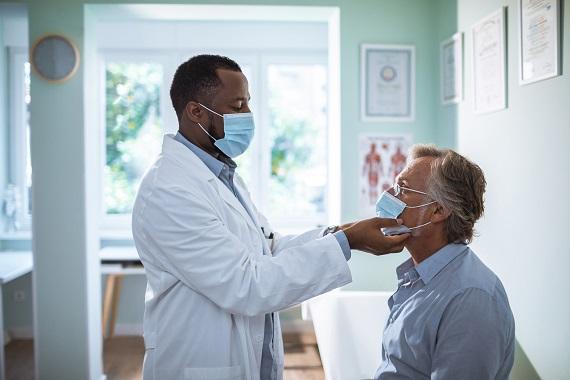Primary Care Physicians: Your Partners in Preventive Health and Wellness

In today’s fast-paced world, maintaining good health is more important than ever. Many people only seek medical care when they are sick or injured, but this reactive approach often leads to bigger health issues down the road. That’s where primary care physicians (PCPs) come in. They serve as the cornerstone of healthcare, focusing not only on treating illnesses but also on preventing them before they occur.
What Is a Primary Care Physician?
A primary care physician is a medical professional who provides comprehensive, ongoing care for individuals and families. They are often the first point of contact when you have a health concern, acting as your personal guide through the healthcare system.
Primary care physicians are trained in various areas of medicine, including internal medicine, family practice, and pediatrics. This makes them uniquely qualified to treat a wide range of conditions while focusing on your overall well-being rather than just specific symptoms.
Why Primary Care Physicians Are Important
Many people underestimate the value of having a primary care physician. However, having a trusted doctor who knows your medical history can make a huge difference in your overall health. Here’s why:
· Early Detection of Health Issues:
Regular check-ups with a PCP allow for the early identification of potential problems like high blood pressure, diabetes, or high cholesterol.
· Continuity of Care:
With a PCP, you receive consistent, coordinated care over time. They track your progress and adjust treatments as needed.
· Preventive Focus:
Instead of just treating illness, primary care physicians emphasize prevention through vaccines, screenings, and lifestyle advice.
· Personalized Care:
Your PCP gets to know you, your family history, and your health goals, providing a customized approach to care.
· Guidance Through the Healthcare System:
If you need specialized care, your PCP will refer you to the right specialists and coordinate your treatment plan.
Services Provided by Primary Care Physicians
Primary care physicians offer a wide variety of services aimed at keeping you healthy. These include:
1. Annual Check-Ups and Physical Exams
Routine exams allow your PCP to monitor your health and address concerns before they become serious.
2. Preventive Screenings
Screenings for conditions like cancer, diabetes, and heart disease are essential for early detection and treatment.
3. Chronic Disease Management
For conditions such as asthma, hypertension, and arthritis, your PCP provides ongoing care and management strategies.
4. Vaccinations
Primary care doctors ensure you are up to date with important vaccines, protecting you and those around you from preventable diseases.
5. Health Education and Counseling
From nutrition guidance to stress management, PCPs offer resources to help you lead a healthier lifestyle.
The Role of Preventive Care
Preventive care is one of the key responsibilities of a primary care physician. Rather than waiting for illness to strike, preventive care focuses on minimizing risks and maintaining long-term health. Some preventive care strategies include:
· Regular blood tests and screenings to monitor cholesterol and glucose levels.
· Lifestyle advice, such as diet and exercise recommendations.
· Mental health screenings to address anxiety, depression, or stress early on.
· Immunizations to protect against common illnesses.
By addressing health risks proactively, you can avoid costly treatments and serious complications later in life.
Building a Strong Relationship with Your PCP
The relationship between you and your primary care physician is built on trust and open communication. To get the most out of this partnership:
· Be honest about your symptoms, lifestyle habits, and concerns.
· Follow through on recommended tests and treatments.
· Ask questions if you don’t understand something about your care plan.
· Schedule regular check-ups, even when you feel healthy.
A strong doctor-patient relationship ensures that your PCP can provide the best possible care tailored to your needs.
How to Choose the Right Primary Care Physician
Selecting a PCP is an important decision. Here are a few tips to help you choose:
· Check Credentials: Make sure they are board-certified in their area of expertise.
· Consider Location and Accessibility: Choose a clinic close to home or work for convenience.
· Evaluate Communication Style: Look for a doctor who listens carefully and explains things clearly.
· Verify Insurance Coverage: Ensure the doctor is in-network with your health insurance plan.
The Long-Term Benefits of Having a Primary Care Physician
Establishing care with a PCP provides lifelong benefits, such as:
· Reduced healthcare costs due to preventive care and early detection.
· Lower risk of hospitalization through proactive disease management.
· Improved mental and physical health thanks to personalized attention.
· A trusted advocate who understands your medical history and preferences.
Conclusion
Primary care physicians are more than just doctors who treat illnesses—they are your partners in achieving long-term wellness. By focusing on prevention, early detection, and personalized care, they help you lead a healthier, happier life.





